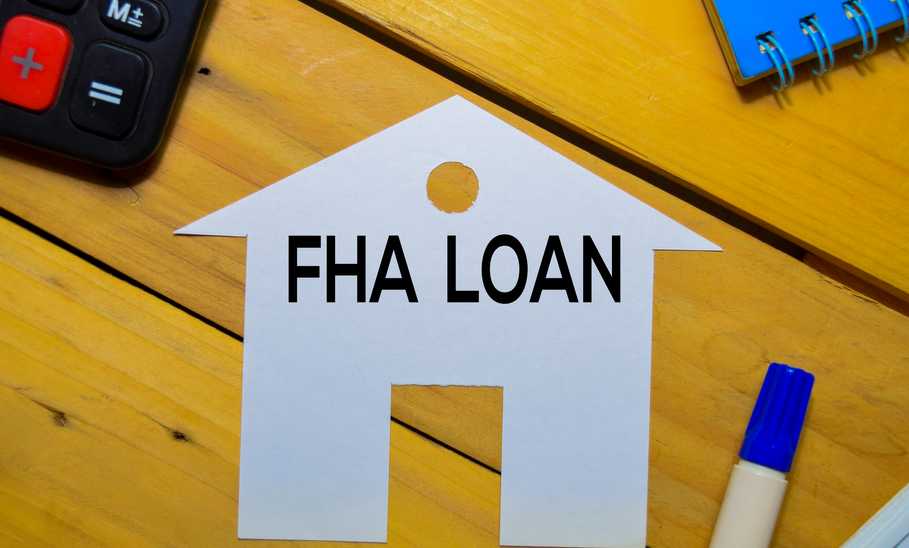- Low credit score requirements
- Low down payment requirements
- Flexible debt-to-income requirements
What is an FHA Loan?

Our evaluations and opinions are not influenced by our advertising relationships, but we may earn a commission from our partners’ links. This content is created by TIME Stamped, under TIME’s direction and produced in accordance with TIME’s editorial guidelines and overseen by TIME’s editorial staff. Learn more about it.
If you're in the market for a mortgage, one option to consider is an FHA loan. These mortgages are issued by private lenders and backed by the Federal Housing Administration (FHA). With more relaxed requirements than conventional mortgages, FHA loans help make homeownership more accessible to borrowers with lower credit scores, higher debt, or smaller down payments. Here's a closer look at FHA loans to help you decide whether one might be right for you.
The FHA doesn't lend money to borrowers. Instead, FHA loans are issued by FHA-approved lenders, including many banks, credit unions, and retail mortgage lenders. The FHA's role is to insure the loans—protecting lenders against losses if a borrower defaults. For this reason, lenders bear less risk and can offer better deals to first-time homebuyers and borrowers with less-than-perfect credit.
There are several types of FHA loans available to qualified borrowers.
Congress established the FHA in 1934 to facilitate home financing and improve housing standards following the Great Depression. Before the FHA, balloon mortgages were the norm, and borrowers had to make down payments as high as 30% to 50%. FHA-backed loans introduced low-down-payment mortgages and extended the repayment period from five to 10 years to 20 to 30 years. Interest rates also decreased because an FHA-backed loan meant less risk for lenders.
These changes were intended to make home buying accessible to more borrowers—and they did for many segments of the population. However, low-income families, single women (who weren't war widows), and racial minorities did not benefit from the FHA programs initially. It would be several decades before the Fair Housing Act of 1968 prohibited discrimination in housing, including mortgage lending and appraisal practices. Several years later, the Equal Credit Opportunity Act (ECOA) of 1974 and the Community Reinvestment Act (CRA) of 1977 were passed to further address unfair biases in credit and lending.
Unfortunately, illegal credit discrimination still exists. The Consumer Financial Protection Bureau (CFPB) recommends the following steps if you believe you've been discriminated against:
Although it may be easier to qualify for an FHA loan than a conventional one, you (and the property you're financing) still need to meet certain requirements.
You'll need to find an FHA lender if you're interested in an FHA loan. You can use the Department of Housing and Urban Development’s (HUD) lender list tool to research your options. Once you find a lender, the process is much like applying for any mortgage. Getting quotes from at least three lenders will help ensure you get the best deal.
Some factors that affect mortgage rates are out of your control, such as inflation and the Federal Reserve's monetary policy. Fortunately, other factors are in your control. To get the best FHA rates, focus on boosting your credit score and lowering your debt-to-income ratio before applying for a loan. When you're ready, shop around and compare offers from at least three lenders to find the best rates.
FHA loan limits specify how much you can borrow, depending on your region and the property type. The limits are updated yearly to reflect current home prices and living costs. Here are the FHA loan limits for 2024 (the special exception areas include Alaska, Hawaii, Guam, and the U.S. Virgin Islands):
| Property type | Low-cost areas | High-cost areas | Special exceptions |
|---|---|---|---|
One unit | $498,257 | $1,149,825 | $1,724,725 |
Two unit | $637,950 | $1,472,250 | $2,208,375 |
Three unit | $771,125 | $1,779,525 | $2,669,275 |
Four unit | $958,350 | $2,211,600 | $3,317,400 |
You can use the FHA mortgage limits tool to look up specific limits in your area.
You may be eligible for loan relief if you need help making monthly payments on an FHA loan. In a recent press release, the FHA announced a new Payment Supplement program that helps borrowers catch up on mortgage payments and avoid foreclosure. The FHA also announced it's extending the loan-relief programs it originally developed as part of its COVID-19 recovery efforts through April 30, 2025.
FHA loans are only one option. Here are a few other programs to consider:
Conventional loans require higher credit scores and lower DTIs than FHA loans. However, they allow a smaller (3%) down payment, have more lenient property standards, and don't require mortgage insurance when you put down at least 20%.
Eligible veterans, service members, and surviving spouses may qualify for a VA home loan. These loans are issued by private lenders and guaranteed by the U.S. Department of Veterans Affairs (VA). They offer competitive interest rates, limited closing costs, and no down payment or mortgage insurance requirements.
The U.S. Department of Agriculture (USDA) offers mortgages to low- and moderate-income borrowers in rural areas. There are no credit score requirements, but you must demonstrate a "willingness and ability to handle and manage debt." These loans also have no down payment requirements and lower interest rates than conventional loans.
Fannie Mae's HomeReady program offers down payments as low as 3%, cancellable mortgage insurance once your equity reaches 20% (restrictions apply), flexible funding options, and a $2,500 credit to help very low-income borrowers cover down payment and closing costs.
Freddie Mac's Home Possible mortgage program is similar to HomeReady, offering a 3% down payment, cancellable mortgage insurance, and flexible sources of funding for your down payment.
You're more likely to find the best deal if you request, review, and compare offers from at least three lenders. Remember that multiple credit checks from mortgage lenders count as a single credit inquiry within a 45 day window. That means you can get additional loan estimates without hurting your credit score.
An FHA loan can be a worthy option if you have a lower credit score, high debt, or a smaller down payment. However, FHA loans may be more expensive than conventional mortgages when you add in the upfront and annual mortgage insurance premiums. You might be better off with a conventional mortgage if you meet the credit score, DTI, and down payment requirements.
A lender could deny your loan application if your credit score is below 500, your DTI is higher than 50%, or you don't have enough cash to make the required down payment.
The minimum down payment for an FHA loan is 3.5% with a credit score of 580 or higher. You'll need to put down at least 10% if your credit score is between 500 and 579.
The information presented here is created by TIME Stamped and overseen by TIME editorial staff. To learn more, see our About Us page.



